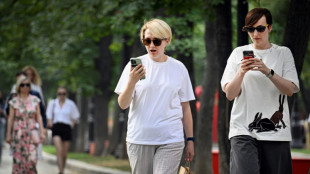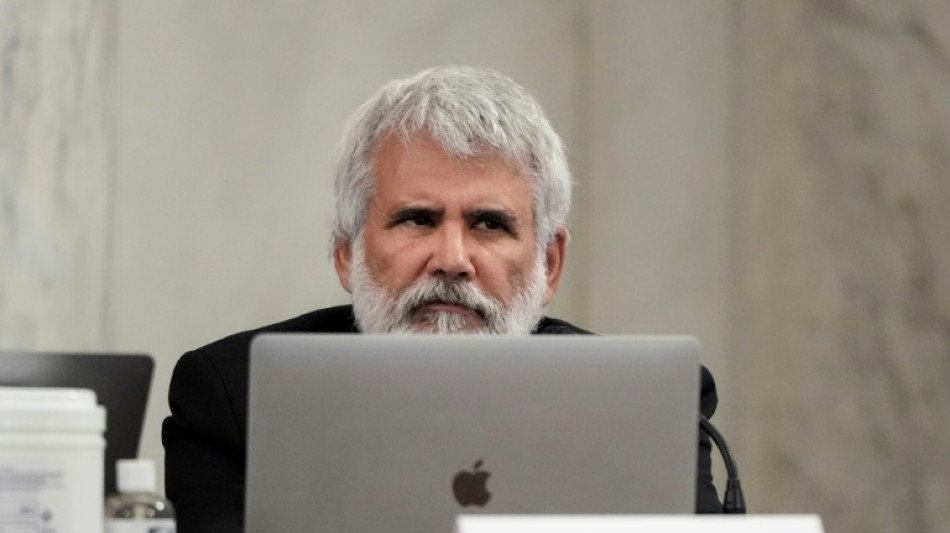
-
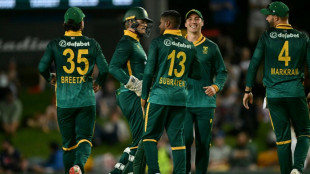 South Africa spinner Subrayen cited for suspect bowling action
South Africa spinner Subrayen cited for suspect bowling action
-
Menendez brothers face parole board seeking freedom after parents murders
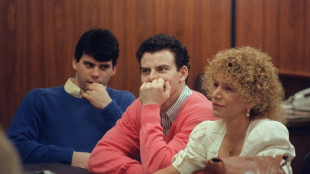
-
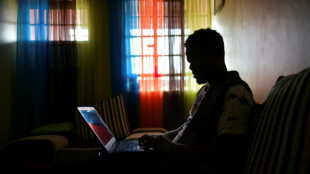 Weaponising the feed: Inside Kenya's online war against activists
Weaponising the feed: Inside Kenya's online war against activists
-
Africa could become 'renewable superpower', says Guterres
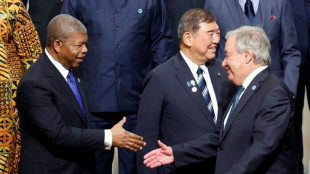
-
 Suspended Thai PM in court for case seeking her ouster
Suspended Thai PM in court for case seeking her ouster
-
Errani, Vavassori retain US Open mixed doubles title in revamped event
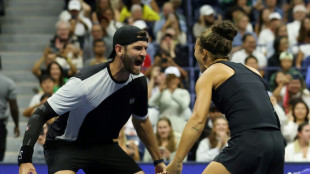
-
 Surging tourism is polluting Antarctica, scientists warn
Surging tourism is polluting Antarctica, scientists warn
-
Ten Hag hoping for fresh start at rebuilding Leverkusen
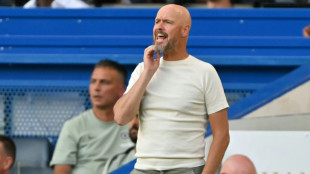
-
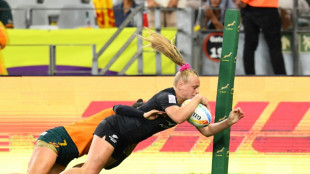 Five players to watch at the Women's Rugby World Cup
Five players to watch at the Women's Rugby World Cup
-
Suarez fills Messi void as Inter Miami beat Tigres 2-1

-
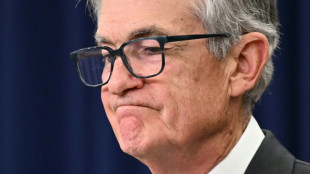 Asian markets creep up as investors await key speech
Asian markets creep up as investors await key speech
-
New Zealand spy service warns of China interference

-
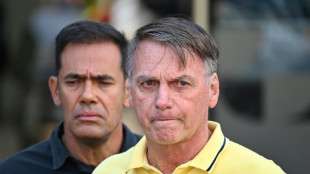 Brazil police accuse Bolsonaro and son of obstructing coup trial
Brazil police accuse Bolsonaro and son of obstructing coup trial
-
Israel approves major West Bank settlement project

-
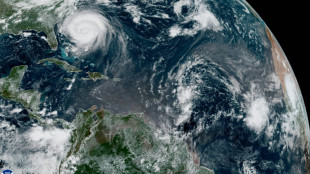 North Carolina braces for flooding from Hurricane Erin
North Carolina braces for flooding from Hurricane Erin
-
Pensioners on the frontline of Argentina's fiery politics
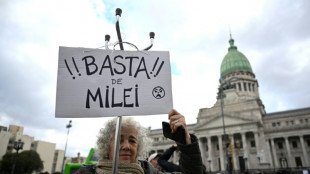
-
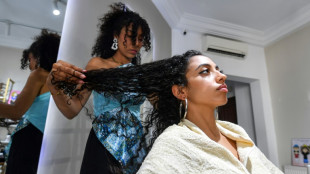 'Curly is beautiful': Tunisian women embrace natural hair
'Curly is beautiful': Tunisian women embrace natural hair
-
Sudanese lay first bricks to rebuild war-torn Khartoum

-
 Newcastle host Liverpool amid Isak stand-off, Spurs test new-look Man City
Newcastle host Liverpool amid Isak stand-off, Spurs test new-look Man City
-
Texas Republicans advance map that reignited US redistricting wars

-
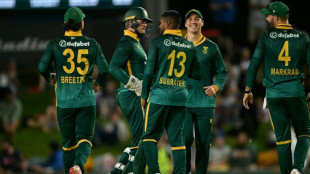 South Africa spinner Subrayen cited for suspect action
South Africa spinner Subrayen cited for suspect action
-
Meme-lord Newsom riles Republicans with Trump-trolling posts
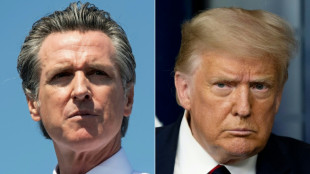
-
 Messi ruled out of Miami's Leagues Cup quarter-final v Tigres
Messi ruled out of Miami's Leagues Cup quarter-final v Tigres
-
Trump raises pressure on Fed with call for governor to resign
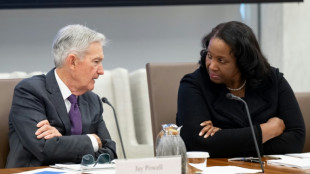
-
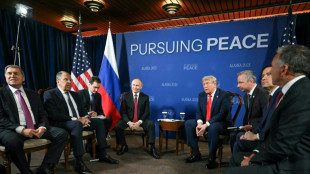 Trump flirts with Ukraine security, with narrow margins
Trump flirts with Ukraine security, with narrow margins
-
US sends three warships near Venezuela coast

-
 Celtic held by Kairat Almaty in Champions League play-off
Celtic held by Kairat Almaty in Champions League play-off
-
North Carolina braces for flooding from 'Enormous' Erin
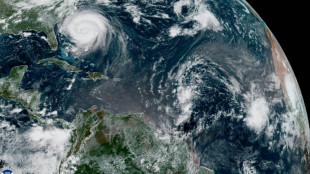
-
 Arsenal could hijack Spurs' bid for Palace star Eze - reports
Arsenal could hijack Spurs' bid for Palace star Eze - reports
-
Namibian Shalulile equals South African scoring record

-
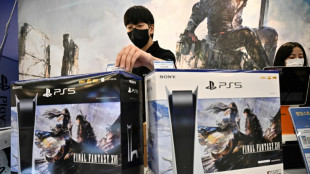 PlayStation prices rise as US tariffs bite
PlayStation prices rise as US tariffs bite
-
Games publisher kepler on cloud nine after smash hits

-
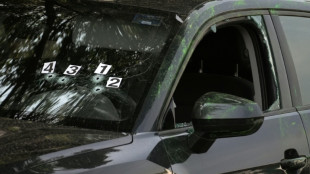 Thirteen arrested over murders of Mexico City officials
Thirteen arrested over murders of Mexico City officials
-
Seville storms past Lyles for Lausanne 100m win
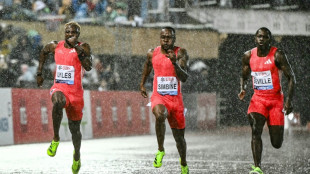
-
 India test-fires nuclear-capable ballistic missile
India test-fires nuclear-capable ballistic missile
-
Google unveils latest Pixel phones packed with AI

-
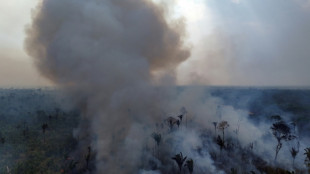 Brazil records 65 percent drop in Amazon area burned by fire
Brazil records 65 percent drop in Amazon area burned by fire
-
Threat from massive western Canada wildfire eases

-
 England women's rugby coach Mitchell says World Cup favourites' tag 'irrelevant'
England women's rugby coach Mitchell says World Cup favourites' tag 'irrelevant'
-
US ramps up attack on international court over Israel

-
 Palace transfer targets Eze and Guehi to start in European tie
Palace transfer targets Eze and Guehi to start in European tie
-
North Carolina coasts prepare for flooding as Erin churns offshore

-
 India test-fires ballistic missile ahead of US tariff hike
India test-fires ballistic missile ahead of US tariff hike
-
Antarctic climate shifts threaten 'catastrophic' impacts globally

-
 Tall ships sail into Amsterdam for giant maritime festival
Tall ships sail into Amsterdam for giant maritime festival
-
Trump raises pressure on central bank, calls for Fed governor to resign

-
 Woods to head PGA Tour committee to overhaul golf
Woods to head PGA Tour committee to overhaul golf
-
Google packs new Pixel phones with AI

-
 How Europe tried to speak Trump
How Europe tried to speak Trump
-
Stock markets diverge awaiting Fed signals as tech sell-off deepens


RFK Jr.'s vaccine panel opens amid backlash over fabricated study
A medical panel appointed by US Health Secretary Robert F. Kennedy Jr. opened its first meeting Wednesday under a cloud of controversy after a presentation it planned to review cited a non-existent study.
The Advisory Committee on Immunization Practices (ACIP), an independent body that reviews scientific evidence to recommend which groups should receive vaccines and when, rarely makes headlines.
But its work has come under fresh scrutiny after Kennedy -- who spent two decades spreading vaccine misinformation before becoming President Donald Trump's top health official -- abruptly dismissed all 17 sitting ACIP members earlier this month, accusing them of pharmaceutical industry conflicts of interest.
He then appointed eight new members, including scientist Robert Malone, widely known for spreading false claims during the Covid-19 pandemic, and Martin Kulldorff, chair of the panel and a co-signatory of the Great Barrington Declaration, which called for an end to lockdowns in October 2020 -- months before Covid vaccines became available.
The posted agenda signaled the panel would revisit long-settled debates around thimerosal, a vaccine preservative, and highlight rare side effects linked to measles shots, with no planned discussion of their enormous public health benefits.
Lyn Redwood, a nurse and former leader of Children's Health Defense -- an anti-vaccine group once chaired by RFK Jr. -- is set to present on thimerosal.
Scientists reviewing her slides found she had cited a non-existent 2008 study by RF Berman titled "Low-level neonatal thimerosal exposure: Long-term consequences in the brain."
In fact, no such study exists. While Berman did publish a paper that year, it appeared in a different journal and found no evidence linking thimerosal to autism.
The presentation was quietly removed and replaced without explanation.
- Revisiting established science -
Opening the meeting, Kulldorff lamented his firing by Harvard University for refusing the Covid vaccine. He also announced the formation of a new working group to re-examine the wisdom of Hepatitis B shots for babies "at the day of birth."
Experts met the announcement with skepticism.
"The rationale for Hepatitis B vaccination prior to hospital discharge (not day or birth) for neonates is well documented and established -- but it's another pet cause of the anti-vaccine movement so not surprising it's being mentioned," Amesh Adalja, an infectious disease expert at Johns Hopkins University told AFP.
Similiarly, thimerosal is a mercury-based preservative long used in medicines, with no evidence of harm at low doses.
"Study after study showed that the ethylmercury in those vaccines never contributed in any important way to the burden of mercury that one is exposed to, living on this planet," vaccine expert Paul Offit of the Children's Hospital of Philadelphia told AFP.
Still, vaccine makers agreed to remove it from pediatric vaccines in 1999 in response to public concern. It remains in some flu shots.
- Measles running rampant -
For childhood immunizations, US parents can opt for a combined measles, mumps, rubella, and varicella (MMRV) shot or two separate injections -- one for MMR and the other for varicella.
The combination spares children an extra jab but carries a slightly higher risk of febrile seizures, a rare and typically harmless side effect.
Separating the shots is already recommended for the first dose at 12–47 months, leaving experts puzzled as to why the issue is being revisited.
"This working group may also look at new research concerning the optimal timing of the MMR vaccine to resolve religious objections that some parents have concerning the MMR vaccine being used here in the United States," said Kulldorff.
The United States, which declared measles eliminated in 2000, is currently experiencing its worst outbreak in decades, with more than 1,200 cases and three confirmed deaths.
The panel's recommendations could have broad consequences, shaping school vaccine mandates and insurance coverage.
G.AbuHamad--SF-PST

